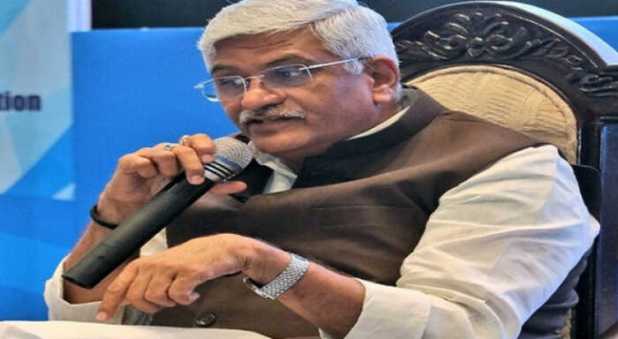
Kolkata, Mar 9 : Over 5.91 crore tap water connections have been provided in the country under the Jal Jeevan Mission and 47.39 percent of rural households are benefitting from clean drinking water, a on Minister said here on Wednesday. “When Jal Jeevan Mission was launched by Prime Minister Narendra Modi on August 15, 2019, only 17 percent of the rural households had access to tap water connection. Despite disruptions and lockdown in the last two-and-half years, we have managed to provide more than 5.91 Crore tap water connections and 47.39 percent of households in villages are benefitting from clean drinking water,” on Minister for Jal Shakti Gajendra Singh Shekhawat said. The Minister during the day chaired a regional conference of six States here to review the progress made by them under Jal Jeevan Mission and Swachh Bharat Mission-Grameen. Shekhawat asserted there is no dearth of funds for the implementation of the two flagship programmes of the government. For 2022-23, Rs 14,449 Crore has been allocated as Central grant to the six participating States for ensuring 100 percent tap water connectivity and sustaining Open Defecation Free status and solid and liquid waste management (SLWM) in villages. All districts in India declared themselves open defecation free (ODF) on October 2, 2019, much ahead of the target deadline set under Sustainable Development Goal (SDG) 6. He exhorted the States which are on the banks of river Ganga to ensure that not a single drop of untreated water flows into the river. If required funds from various schemes may be dovetailed for carrying out SLWM activities in these villages. Jal Jeevan Mission, with its motto of “har Ghar Nal, Har Ghar Jal” (tap water connection in every household) is envisioned to provide safe and adequate drinking water through individual household tap connections by 2024 to all households in rural India. The Minister said ‘Har Ghar Jal’ should be a society driven and not engineer-driven programme. He said the States/ UTs must give preference to single-village gravity-based schemes as these are affordable, sustainable and economical in operation and maintenance in the long-run. “The cost component should be thoroughly checked as we formulate detailed project reports (DPRs) for schemes under Jal Jeevan Mission.” on Minister of State for Jal Shakti and Food Processing IndustriesPrahlad Singh Patel said stressed the need to focus on comm ty involvement in planning and monitoring. Village Water and Sanitation Committee (VWSC). “Surveillance committee members must be trained and local people should be skilled to carry out minor repair and maintenance of water supply infrastructure in the. long run. Water testing laboratories at district level need to be strengthened so as to ensure the quality of water supplied in every household and public institution. It is very essential that we ensure the quality of water and the pipe through which water flows,” Patel said. The Conference was attended by Pulak Roy, West Bengal Minister of Public Health Engineering (PHE) and Panchayat & Rural Development, and senior officials from Bihar, Chhattisgarh, Jharkhand, Mizoram and Odisha. The participating states shared their concerns while implementing ‘Har Ghar Jal’ and ‘Swachh Bharat Mission(Grameen) programme. Under the 15th Finance Commission, a total of Rs 27,908 Crore has been allocated for Rural Local Bodies/ Panchayati Raj Institutions (RLBs/ PRIs) for the year 2022-23. There is an assured allocation of Rs 1,42,084 Crore for the next five years i.e. upto 2025-26. For the six participating States, Rs 6,856 Crore has been allocated as a tied grant to carry out water and sanitation-related activities for the year 2022-23. For the year 2022-23 under JJM, Rs 13,105 Crore has been tentatively allocated by the Centre for these 6 States. (Bihar – Rs 2,699 Crore, Chhattisgarh – Rs 1,308 Crore, Jharkhand – Rs 1,643 Crore, Mizoram – Rs 201 Crore, Odisha – Rs 2,036 Crore and West Bengal – Rs 5,218 Crore). Under SBM(G), Rs 1,344.71 Crore has been tentatively allocated for these states. (Bihar – Rs 499.50 Crore, Chhattisgarh – Rs 149.88 Crore, Jharkhand – Rs 109.19 Crore, Mizoram – Rs 10.74 Crore, Odisha – Rs 213.71 and West Bengal – Rs 361.69 Crore). BM SSP

